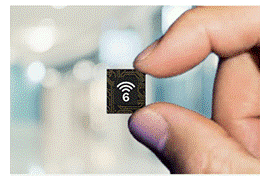Prices for electronics sold online at top U.S. retailers were up slightly heading into the critical U.S. shopping season, but sites including Walmart Inc and Amazon.com Inc have held prices steady for many other popular holiday products despite the pressure from tariffs on Chinese imports.
The analysis is based on a pricing study conducted for Reuters by retail analytics firm Profitero, which examined online prices from seven large retailers for 21,000 products.
The firm compared product prices during October and November last year to those this year in key holiday categories including appliances, electronics, toys and video games across Walmart, Walmart-owned Jet.com, Amazon, Target Corp, Best Buy, GameStop and Staples.
On average, the prices the retailers charged for electronics were 2.3% higher than the year-ago period, while across all the categories, prices were 0.9% higher, said Keith Anderson, senior vice president for strategy and insights at Profitero.
That's lower than the average rate of inflation during the same period, which stood at 2.4% in 2018 and about 1.8% in 2019 so far.
In categories such as toys, prices dipped 0.2% and video games fell 2%, according to Profitero, which has not looked at year-over-year changes in pricing across the sampling of retailers and categories in the past.
Walmart and Target did not comment on the study but pointed Reuters to past comments from executives about how they have managed tariffs by working with vendors and diversifying their supply chain. Amazon did not immediately comment on the study. Best Buy declined comment and GameStop did not respond to requests for comment. Staples asked to see the study but did not comment.
America's trade war with China threatens to push up product prices, which could hurt consumer spending this holiday season, a period which makes up nearly 40% of annual revenue for many retailers. The two countries are currently struggling to strike a preliminary trade deal.
About $539 billion worth of goods came into the United States from China in 2018, making the country the largest supplier of imported goods, the U.S. Trade Representative said. U.S. President Donald Trump has imposed tariffs and threatened more as leverage in trade negotiations with Beijing.
But while tariffs have driven up costs of goods for many retailers, at least the large firms have so far refrained from passing that cost pressure to shoppers, according to interviews with researchers, consultants and retail companies.
EBIT margins for all retailers excluding Walmart have been declining since October 2018 and at 6.7% are at their lowest since 2010, according to an analysis by Oxford Economics.
But consumers are not seeing the full effects. Click here for more.






